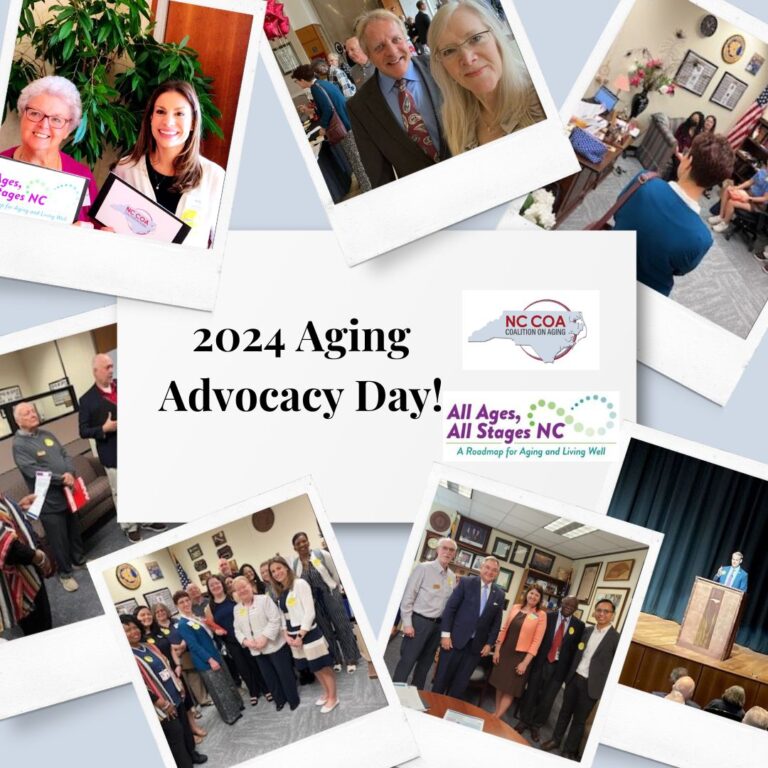Priorities

Our Priorities
Each year after dialogue among its members, the Coalition develops legislative priorities. The issues identified below are the Coalitions priorities for 2024; however, they do not represent the entirety of the issues which the Coalition supports and on which it takes a position. The Coalition typically has a Legislative Advocacy Day in the spring to meet with state legislators to share our priority issues.
2024 Legislative & Public Policy Priorities
Today in North Carolina, there are over 1.9 million people over the age of 65 – more than one in six of every person in our state. In the next 20 years, the number of North Carolinians aged 65 and older will increase by 48%. During this same period, the 85+ segment will grow by a dramatic 114%. This group of the oldest old are most likely to need care and support. This changing demographic shift has been known for decades but the state is ill equipped to handle the growing needs for long-term services and support, workforce adequacy and support for family caregivers. This shift in the state’s population comes as the pandemic exacerbated existing problems and presented new challenges for our state’s seniors. The priority issues for the NC Coalition on Aging are presented in three categories below to address the wide variety of aging needs in our state.
ENSURE ACCESS TO A FULL ARRAY OF LONG-TERM CARE SERVICES AND SUPPORTS ACROSS SETTINGS
- Implement solutions to improve direct care workforce adequacy such as prioritizing training for working with older adults, hiring incentives to recruit more candidates, loan assistance, and benefits such as paid sick leave.
- Ensure there is not a cliff in the availability of services and support for older adults and people with disabilities after ARPA funds are expended.
- Begin the process of exploring the feasibility of conducting a comprehensive rate and wage analysis of Medicaid funded long term care services and supports.
SUPPORT ECONOMINC SELF-SUFFICENCY FOR OLDER ADULTS AND THEIR CAREGIVERS
- Support individuals’ ability to save for retirement by developing a state-facilitated, privately operated Individual Retirement Account.
- Increase support for family caregivers who are the backbone of our care delivery system by taking actions such as expanding options for care assistance, increasing benefits and protections for those who are in the workforce, and expanding the definition of family for caregiving and leave related policies.
INVEST IN VULNERABLE ADULTS
- Invest state dollars in adult protective services, provided by county departments of social services, to provide funding for adult services program staff and essential services.
- Explore and fund options to ensure older adults and people with disabilities have safe and affordable housing such as expanding funding for home improvement and repair and increasing property tax exemptions provisions.
- Implement programs and services to address healthcare challenges experienced by older adults.